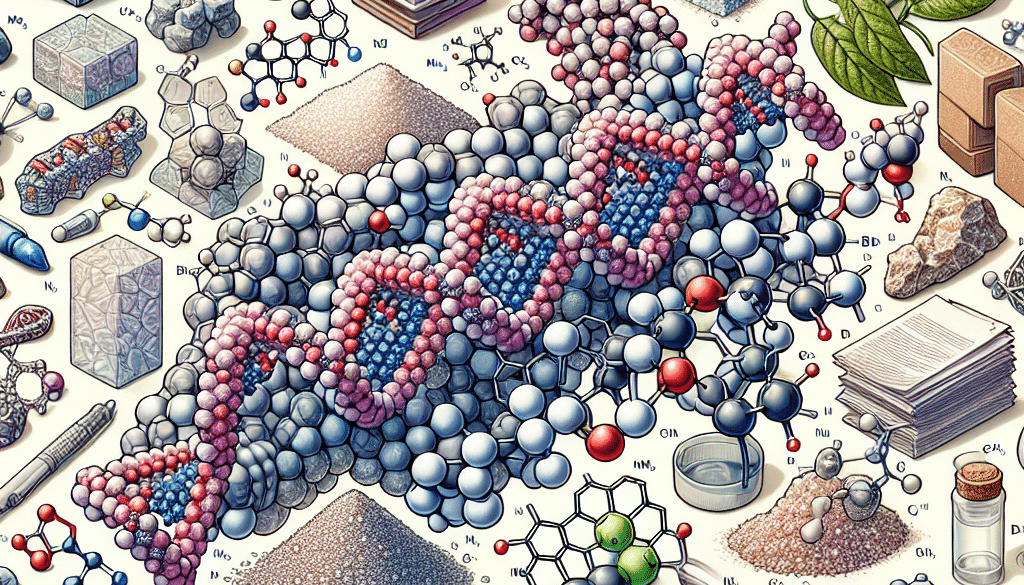Amino Acids: What Doesn’t Contain These Building Blocks?
-
Table of Contents
- Amino Acids: Exploring Entities Without These Essential Building Blocks
- Understanding Amino Acids
- Non-Proteinogenic Amino Acids
- Entities Without Amino Acids
- Inorganic Substances
- Non-Living Natural Materials
- Man-Made Materials
- Viruses
- Implications of Amino Acid Absence
- Industrial Applications
- Biological Inactivity
- Environmental Considerations
- Conclusion
- Discover ETprotein’s High-Quality Protein Products
Amino Acids: Exploring Entities Without These Essential Building Blocks

Amino acids are often referred to as the building blocks of life. They are fundamental components for the synthesis of proteins, which in turn play a crucial role in virtually all biological processes. However, not all entities contain these organic compounds. This article delves into the fascinating world of amino acids, exploring what doesn’t contain these essential molecules and the implications thereof.
Understanding Amino Acids
Before we explore what lacks amino acids, it’s important to understand what they are and why they’re so vital. Amino acids are organic compounds composed of nitrogen, carbon, hydrogen, oxygen, and sometimes sulfur. They are the monomers that make up proteins, and there are twenty standard amino acids that are encoded by the genetic code of living organisms.
Non-Proteinogenic Amino Acids
While there are twenty standard amino acids involved in protein synthesis, there are also non-proteinogenic amino acids that do not form proteins but have other roles in the body. These include neurotransmitter synthesis, detoxification, and as intermediates in metabolism.
Entities Without Amino Acids
Now, let’s explore the entities that do not contain amino acids:
Inorganic Substances
- Water: H2O, the most abundant molecule on Earth, does not contain any amino acids.
- Minerals: Elements and compounds like iron, calcium, and sodium chloride are devoid of amino acids.
- Atmospheric Gases: Oxygen, nitrogen, and carbon dioxide in the atmosphere contain no amino acids.
Non-Living Natural Materials
- Soil: Although soil can contain organic matter, the inorganic components like sand, silt, and clay do not have amino acids.
- Rocks: Igneous, sedimentary, and metamorphic rocks are composed of minerals and do not contain these organic compounds.
Man-Made Materials
- Plastics: Synthetic polymers such as polyethylene and polystyrene are not made up of amino acids.
- Metals: Items made from metals like steel, aluminum, and copper lack amino acids.
- Chemicals: Many industrial chemicals, including acids, bases, and solvents, do not contain amino acids.
Viruses
Viruses are a unique case. They are not considered living organisms by many scientists because they cannot reproduce on their own and do not carry out metabolic processes. Viruses do contain proteins, which are made of amino acids, but they must hijack a host cell to synthesize them. Therefore, while viruses can contain amino acids indirectly, they do not have the machinery to produce them independently.
Implications of Amino Acid Absence
The absence of amino acids in certain entities has significant implications:
Industrial Applications
Materials that do not contain amino acids, such as plastics and metals, are crucial in various industries due to their stability and durability. They do not degrade as biological materials do, which is both an advantage in terms of longevity and a challenge for environmental sustainability.
Biological Inactivity
Entities without amino acids are typically not involved in biological processes. For example, minerals and rocks do not play a direct role in the biochemistry of living organisms, although they can be important for providing essential elements.
Environmental Considerations
The absence of amino acids in certain materials means they do not biodegrade. This is a major concern for environmental pollution, particularly with plastics that accumulate in ecosystems.
Conclusion
In conclusion, while amino acids are fundamental to life, there are many entities that do not contain these organic compounds. Understanding what lacks amino acids helps us appreciate the diversity of materials in our world and their various applications and implications. From inorganic substances to man-made materials, the absence of amino acids defines a boundary between the living and non-living, the organic and inorganic, and has profound effects on industry, biology, and the environment.
Discover ETprotein’s High-Quality Protein Products
If you’re looking for protein products that do contain these essential amino acids, ETprotein offers a range of high-quality plant-based protein powders. Their products are ideal for those seeking vegan protein options and are used in various industries, from food and beverage to health and wellness.
About ETprotein:
ETprotein, a reputable plant protein vegan protein Chinese factory manufacturer and supplier, is renowned for producing, stocking, exporting, and delivering the highest quality organic bulk vegan protein and plant proteins. They include Organic rice protein, clear rice protein, pea protein, clear pea protein, watermelon seed protein, pumpkin seed protein, sunflower seed protein, mung bean protein, peanut protein etc. Their offerings, characterized by a neutral taste, non-GMO, allergen-free attributes, cater to a diverse range of industries. They serve nutraceutical, pharmaceutical, cosmeceutical, veterinary, as well as food and beverage finished product distributors, traders, and manufacturers across Europe, USA, Canada, Australia, Thailand, Japan, Korea, Brazil, and Chile, among others.
ETprotein specialization includes exporting and delivering tailor-made protein powder and finished nutritional supplements. Their extensive product range covers sectors like Food and Beverage, Sports Nutrition, Weight Management, Dietary Supplements, Health and Wellness Products, and Infant Formula, ensuring comprehensive solutions to meet all your protein needs.
As a trusted company by leading global food and beverage brands and Fortune 500 companies, ETprotein reinforces China’s reputation in the global arena. For more information or to sample their products, please contact them and email sales(at)ETprotein.com today.














